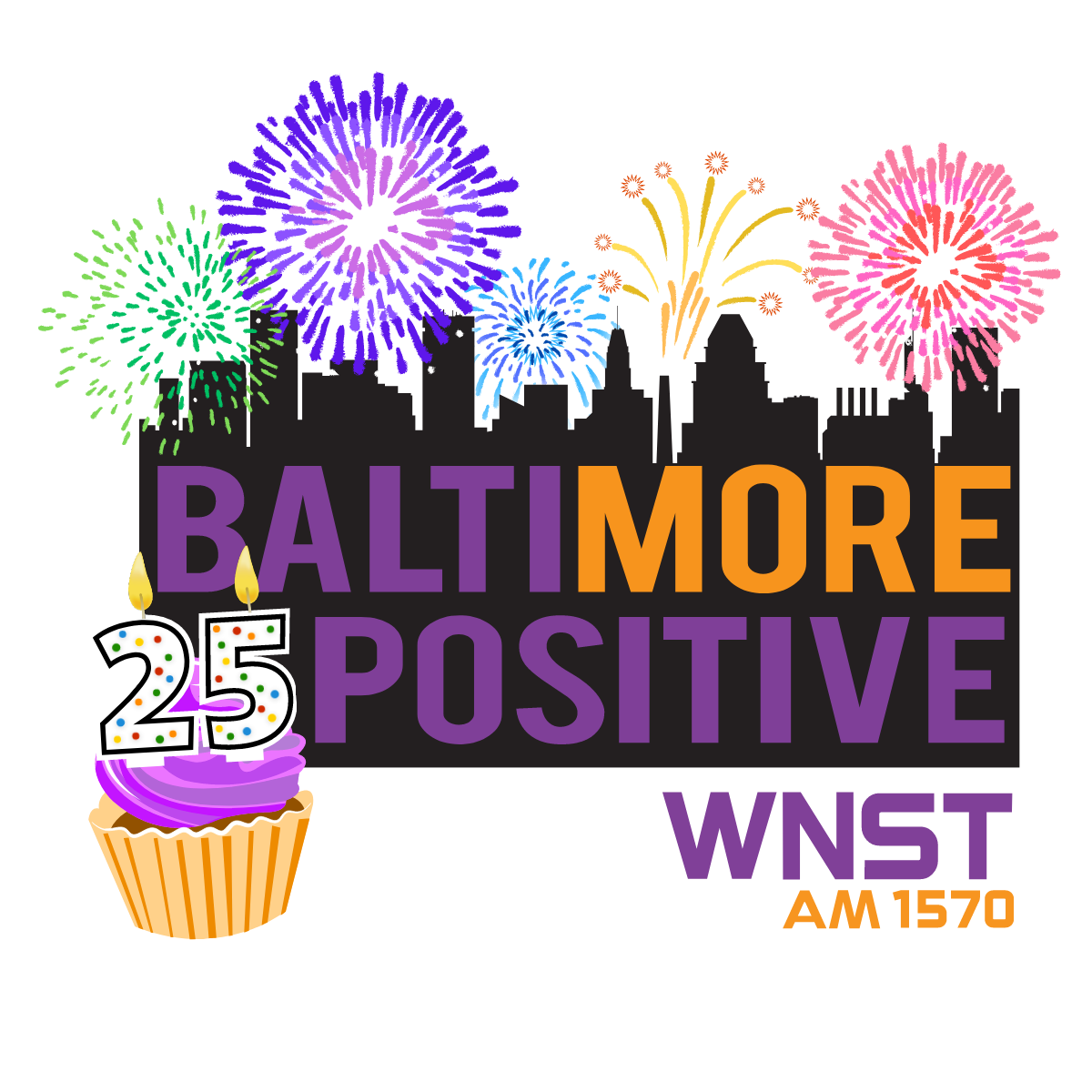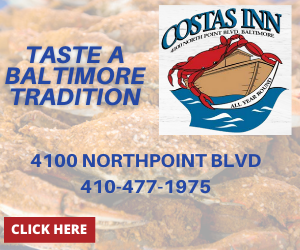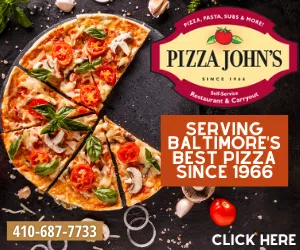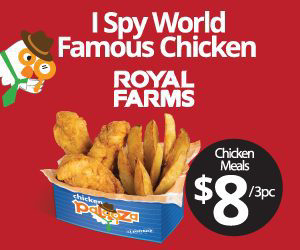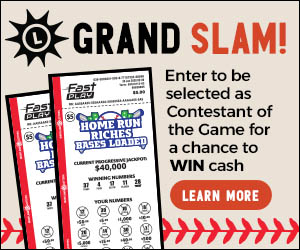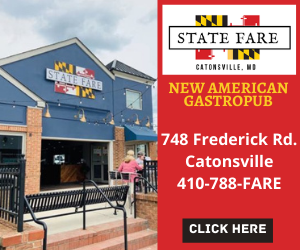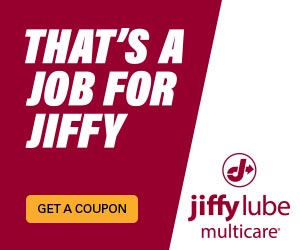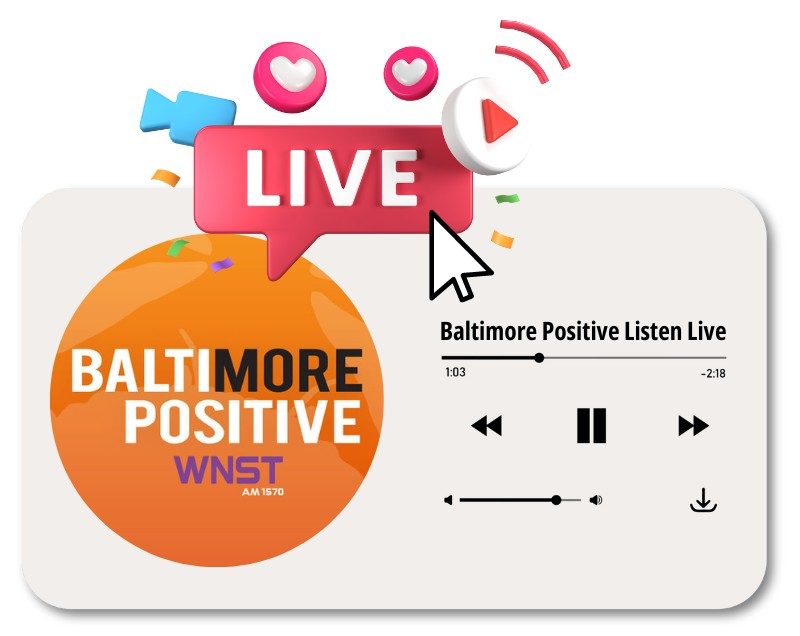Before we can get to where the horse racing industry is headed under a new directive from Annapolis we must first figure out how we got here. Telling the history of Maryland horse racing and the horsemen with Alan Foreman and David Richardson on the Maryland Crab Cake Tour at Greenmount Bowl in Hampstead.
SUMMARY KEYWORDS
horses, horse racing, racing, preakness, racetrack, maryland, laurel, track, years, talking, baltimore, stronach, industry, bowling, alan, called, sports, crab cake, casino gambling, plan
SPEAKERS
David Richardson, Nestor J. Aparicio, Alan Foreman
Nestor J. Aparicio 00:01
Welcome home we are W n s t test Baltimore in Baltimore positive we are positively doing something we have not done before. I’m it’s I’m always looking to do new ground. In pursuit of our 25th anniversary this week I have found footage of John Buren doing our league night at pin land bowling in Dundalk, but I have never made sure 32 years I have never done a show from a bowling alley. I’ve always wanted to I want to go on upstairs at Patterson bowl anytime or fairleads eastpoint Mall. I am at Green mount bowl in Hampstead in beautiful Carroll County. I’ve got some PacMan scratch offs. I’m going to be given away next door. I’ve got a crab cake that I am very, very familiar with. This is the Greenmount station crab cake up here in Hampstead. I love it. I can’t wait to eat and I put a little tin foil on it. Because we got business to talk about here. With the Preakness heading in and new laws being passed and Annapolis doing things. David Richardson has been my friend for a fair number of years he’s done dog guy and a proprietor of all things. Bowling hunt up here and Chris of course agreement station with what do I call it? Do I call it a casino? Do I call it an OTB? What are we?
David Richardson 01:11
So you know, what is it? We’re an OTB we’re a sports book. We’re a bowling alley that that I liked what
Nestor J. Aparicio 01:20
crab cakes and ribs and and Taylor Swift things like that as well. Alan Foreman joins us here we’re going to talk horse racing today in a bowling alley over a crab cake and then I’m cutting out I got my curio wellness of Baltimore shirt on. I’m gonna make my way to the bar and watch the Orioles take on the angels. On Friday we’re going to be faintly selection to Mark and I will also have these Pac Man scratch offs. Luke will be with us some two or three trying to get some of the mayoral candidates to to join us. We’ll figure out when we get there. What exactly we’re gonna find and you know, hey, it’s the Maryland crab cake towards presented by our friends at the Maryland lottery. We’re in conjunction with our friends at Liberty pure solutions to keep my water clean. Have a bottle of water here but when I’m home, it’s Doug and my friends at Liberty pure and of course our friends at Jiffy Lube multi care keeping our car going. Keeping our relief pitching going. You’re baseball guys right so like I have said the first things first you sent me all the sexy stuff you did you have horses behind you now when I put this thing up Marty bass was here bigger than Marty bass should ever be on line 13 There’s pictures of me that made me look glorious here. You have quite this is like not this is not your father’s bowling that this is not fair lanes. He’s
David Richardson 02:30
point. Now No, first of all, I’m disappointed in you. That’s the first time in the bowling alley here. Your Dundalk guy. I mean, come on Nestor. You know
Nestor J. Aparicio 02:39
I carried a 110 average I’m terrible. But not the Danny Wiseman laughed at me for being a duck pen bowler. Dad, he’s been here many times these kids love them pins on this side and duck pins on this. Exactly,
David Richardson 02:51
exactly. I mean, look, I’m a I’m like he was born in Dundalk. My father was worked at Bethlem steel. I mean, that’s what we did. We ducked pin bold. And the impetus behind this place was I wanted to figure out a way to just save this were one of the last duck pin, you know, falling allies.
Nestor J. Aparicio 03:11
When I said I’m coming up soon, duck pins are 10 pins. And we’re both we’re painting when I said that she’s like, okay, but no candle pen.
David Richardson 03:18
So you know, it’s okay. That’s okay. But no, I mean, that was the impetus behind this. And, you know, my wife and I, Nicole, we both work in the thoroughbred horse racing industry. And that’s kind of how we kind of envision what you know, this is. This is like the community center. It really, really is. And we partner with Maryland Jockey Club, we put an OTB next door, we really tried to grow this, this company. And it’s been phenomenal. It’s been phenomenal for the community. And you know, but our heart and soul, Alan, you know, my whole family. I mean, we’re horse racing people. And this is, you know, we’ve got a lot of exciting things coming up here for Maryland racing as well. And I have
Nestor J. Aparicio 03:59
been talking for, you know, a little while now. And it’s very clear to me, we have about 1000 friends in common, right. And amongst these 1000s of friends we have in common. None of them are even horse people. I mean, and yeah, like, literally you you’ve been a real you’ve been at this a long, long time.
Alan Foreman 04:16
Well, I’m a lifelong Baltimorean. I grew up as the crow flies a couple of miles from Pimlico race course, never dreamed that I would be working in the horse business. No matter you know, in whatever respect I did. And to tell you how small the world is. I have younger twin brothers who wound up duck pin bowling center on Harford road. Seidel, no Harford It was then called Hartford, bowling lanes Parkville I’m sorry, Parkville bowling lanes. And they went out of business about 5678 years ago and it’s gotten new proprietors. But David and I have been working in the horse business together for decades now. And yet we have this common link of a bowl duckpin bowling so crazy, just how small the world is particularly here in Baltimore,
Nestor J. Aparicio 05:06
and culture.
Alan Foreman 05:08
But you know, I, I went to the Attorney General’s office in the late 1970s. And one of my clients was in the Maryland racing commission. Our governor had just gone to federal prison in a racetrack scandal. And we had a new governor, new attorney general who came in they were going to clean up Maryland government. And one of the places they wanted to clean up was the racing industry. And Steve sacks, the attorney general at the time, late 70s. We’re talking late 19 719 79. He’s first question he asked me when I went in for my interview was what do you know about horse racing, and I knew very little I had dated the daughter of the owner of Charlestown racetrack for a few months, in, I guess, the late 60s. And but he seemed to like something about me, and I decided to take the position, it turned out to be one of the great positions in state government wasn’t just racing. And I cut my teeth very quickly on some very big national matters. That pretty well known to people and I started working for the Maryland congressman, when I came out of the Attorney General’s office, and I’ve been working with them as their attorney for almost four and a half decades. Well,
Nestor J. Aparicio 06:19
I mean, the institutional knowledge, you know, just going back names that we’ve taught, I mentioned horses in the era back in the 80s. But yeah, the whole spend the bulk thing changed everything right. I mean, like 8485 86 Triple Crown series, where it was gonna go the fact that there’s really sort of like boxing, there was no central, not that Major League Baseball is a central committee, and they’re not letting Oakland happen at this point while we’re here this weekend, but just sort of general oversight, let alone where lasix when and different things like that in that era with horses, but the industry changed dramatically from even let’s say Secretariat to through, let’s say, Ferdinand, you know, that period of time from the mid 70s to the mid 80s. There was trouble keeping up at that time, right? I mean, in real swirling changes in the industry.
Alan Foreman 07:09
But when I came into the sport in the late 1970s, the top three sports in this country, were boxing, Major League Baseball and horse racing. We had if you wanted to gamble in this country, you either went to Las Vegas or you went to a horse track to gamble. Alright, so highlight for Anton. And when steaks dog tracks is where a dog Yeah, as they came on, but if if you wanted to, if you wanted to gamble, you went to the racetrack and it was a fashionable place to go. I mean, Pimlico was a Rite of Spring, people would dress up on Saturdays, you would pay for a table at the racetrack. And it was a place to be.
Nestor J. Aparicio 07:51
When my grandfather blew the bugle and the Preakness in the late 50s and early 60s. That’s what he did. My grandfather was a trumpet tear. And he played pretences and bragged about it forever, because it really was in the 50s. It’s a sport of kings.
David Richardson 08:06
You’d be amazed at how many people that even come through the here that have a connection in the local community, just throughout the whole region that have a connection to horse racing, just like you just said. I mean, we
Alan Foreman 08:17
had four operating racetracks of the time, we had Laurel Pimlico, Billy Timonium. When the state went into the lottery business, when state started competing, you can start to see the changes that occurred in the racing industry, as it lost its gambling exclusive. And that’s David could tell you over the years as gambling on other sports, and whether you did it on the internet, or whether you could go to Vegas, and then you could go to Atlantic
Nestor J. Aparicio 08:48
City or the province and the gambling is now the horsemen you know, it’s where the money came from, right where the money then it’s like, hey, well, I talk baseball every day, the baseball is going to have to figure out how to do this on the television and on real subscribers. So the racetrack then had to live off with people that just like racing, not like just gambling because Atlantic City allowed you to gamble. Right? And that’s quicker. And that’s
Alan Foreman 09:11
that’s been the major challenge for this business has been competition from other forms of gambling, then competition in the sports environment has totally changed. There are just just so many options for people for entertainment today. And if you were not interested in going to a horse track and socializing all afternoon for hours at a time, or were it was too complicated, and it was easier for him. Right, exactly. Those have all been challenges that we’ve been been wrestling with for decades. Dave
Nestor J. Aparicio 09:45
Richards is our guest on our forum and we’re up here at Greenmount bowl. Yes, we’re a bowling alley that had my face on the wall now has horse racing on the wall. How did you get this from Dundalk? Maybe we’ve talked about this but my dad was never a racing guy. Right. My dad was never gambler my dad students soup lines. I’m paying homage to my dad in this in this documentary we’re doing you know my dad was in Scranton, Pennsylvania soup lines never voted for Republican after Herbert Hoover, because Herbert Hoover was a chicken. Every pot. My dad stood bread lines in 1929. My father came down here during the war in the 40s. But my dad was boxing, baseball basketball. Horse racing was just something like he just didn’t gamble. He didn’t have a religious or any code about it. He just didn’t. But gambling in horse racing in my neighborhood. Mr. Sam went to the track. I had neighbors who went to the track, Mr. Frank went to the track, but it wasn’t from my dad and I went to Memorial Stadium. And wrestling matches, I might add that amongst other things, and we played ball and coach ball and all that, but the horse racing thing, talks about golf in my neighborhood. The other day was a couple of people in the neighborhood that had golf clubs. Horse racing was a little bit niche in that way. But Ronnie Franklin’s from Dundalk. And a 9078 79 ad, obviously a very sad story. And there’s been books written about that, and I’ve talked about it on the show. But that was the entree to me that in my neighborhood 76 Seattle slew spectacular bid those years affirmed Aladar we had neighborhood Derby parties pulling horse numbers out and that’s how I had eight or nine or 10 and the fact that why World Sports every Saturday, I watched a home globetrotters. I watched skiing, I watched Innsbruck, Austria, Peggy Fleming, you know, whatever, naughty combination, whatever ABC fed us being kids, three channels in the 70s. Right. So the horse racing thing happened, right? There’s the derby than the Preakness came here. And Ronnie Franklin, and I’m 11 years old and the video you know, so horse racing was on our tongue, but you and I grew up as the crow flies. You know, I met the mother of my child at the skating rink in your neighborhood, and gray man, so you are really a Dundalk guy. I
David Richardson 11:53
am that’s where I was born and moved up here, you know, as I you know, late elementary school or so. But no, my father till the day died worked at Bethlehem Steel. Worked at the shipyard. So don’t hold your tongue. I mean that three times. Yeah, exactly. But, you know, I mean, duckpin bowling, the Preakness. It’s part of our culture, it’s part of who we are. And that’s kind of, you know, I didn’t grow up in a Horseman’s family. But I got introduced to this, you know, my early 20s and fell in love with it really did don’t gamble. No, no, no, no, no, on the business side of things, you know, I, I grew up in the marketing and advertising world. I mean, that’s, that’s why you see a lot of this stuff here. It’s all creative, you know, marketing and advertising. And, I mean, that was a client. You know, we worked with Alan with a lot of different projects, and it kind of just grew into the political side of things. And you know, what I do now
Nestor J. Aparicio 12:45
we I feel like I’ve been on the air for 32 years.
David Richardson 12:47
That’s what we’ve been doing. Horse racing. Just like we tried to save Duncan bowling. We tried to save the horse racing industry. And that’s kind of what we’re embarking on, you know, as a as an industry as the Maryland horsemen really led by by Alan I mean, Alan had this crazy idea that I thought was crazy idea. But, you know, here we are, you know, we’re on the precipice of really controlling our own destiny in the in the state. So let’s
Nestor J. Aparicio 13:07
reset here with Alan on the history of this because I don’t know you, you don’t know me. We know a million people. We sit down to do radio. I’ve been doing this 32 years. I’ve done 32 pregnancies. I come from the background of walking into the news, American, it’s all in the documentary. So it’s good promotion for that too. But I walked into the news American in the sports first and Nike ad for repeat row, Charlie lamb. I had my first credential to go to booing and Pimlico in 8586. It was something that I could do 123 In the afternoon. And you know, honestly, and this is this is me saying something I’ve never said on the air before literally 32 years. I wanted to be around Chris Thomas. I wanted to be around Charlie Ackman. I wanted to be where that thing that happened in the third week of May happened. One of my first assignments as a kid was in 1985. I was 16 years old. I just got my my driver’s license, and I had to run film on Preakness day. And they gave me a news American pass. And I had to meet Ella Jean Sweeney. Or maybe it was no, it was probably Jean Boyers at the time at the news American I had to meet him in the press lot of winter Avenue and grab a bag of film to take at four o’clock I tried to get into the lock. The Steadman always said you were making up the numbers. I’m still a hell of a lot of people. And it was no way to get near it. But I got in there. And somehow I got out and went down to South Street and I delivered, you know, 80 rolls of film so that they could do the Preakness section on Sunday with the hats because that’s what it was when I was delivering the pictures of the infield for the news American special section in 1985. So it was a place they let me in. I could go to the track. I could be a $2 but I didn’t have to read the form, you know taught me to read the form was Charlie Ackman V Perone. And Andrew buyer. These were the people up in that press box and that’s how far back I picture already my god I should have mentioned him first Marty McGee and I became buddies we went drinking and paying in concert was so Paul Simon together so that and there’s bras paddock court called in every night with his picks and I was the kid at the paper putting them in on the scoreboard page. So racing came to me and Vince back when we got the results in the eighth race today Merio Pino one is bored race that they, you know, so I can even emulate all this stuff. That’s how horse racing came to me. It wasn’t my dad. It was on TV and it was through the newspaper. And then it was just all the usual suspects in the in the media that I got to
Alan Foreman 15:38
media icons, all from Maryland. mean a channel 11 Vince Bagley used to show the feature race from the racetrack, whichever was the operative track. Every day on sports. Here’s
Nestor J. Aparicio 15:48
the eighth race ninth race right? Results. Charlie
Alan Foreman 15:51
Eggman used to have breakfast with him every Saturday morning at Pimlico. People call me to judge I’d come here come to judge tell me what’s going on to judge. I
Nestor J. Aparicio 16:01
would sit up in that press box and I would watch I can’t believe I haven’t said Clem floor yours. Let me just another one Clem is featured in the documentary Clem was a blood brother to me a FISA. Oh, you baby. So Clem was literally like a crazy uncle to me. And we used to go down and eat it a meat cheese and we play Bochy, we rolled up Alina
Alan Foreman 16:27
Clemens love seven so
Nestor J. Aparicio 16:28
we would always a bookmaker salad. I meet him in Alaska having a bookmaker with a real bookmaker out back in the day. So all of this being said, that’s the horse racing. I know. And here’s what I know, for 32 years. I know for 32 years, every year, I would do horse racing and Nicky Zito will come on or, or you know, whoever, you know. The too legit to quit came in when your anatomy. Yeah, yeah,
Alan Foreman 16:56
yeah, that was the year that they had the band right next to the horses that were sadly the guy with the cymbals just bangs, the cymbals, three of the horses reared up, one of which was to go to the toilet just acquit. Yeah. And so MC Hammer ended up suing Pimlico, claiming that that incident caused his horse from running well, and that’s kind of stuff that would have for me,
Nestor J. Aparicio 17:18
I’ve been to every alibi breakfast with Marty the great fried chicken at the alibi breakfast. The alibi breakfast, if you’ve heard the Ravens had their liars luncheon two weeks ago. So I’ve now been banned from that, but I named it and I named that the liars luncheon. And Kevin Byrne would get pissed off in the beginning until he caught on. And I’m like, no, no, no, the racetracks had an alibi breakfast forever. This is your version of that. And all you do is lie. Just want to call it the liars log lunch. Yeah, but a lunch so that was the alibi. Breakfast is the reason there’s a liar’s lunch. It
Alan Foreman 17:48
used to be one of the great events of pregnancy. There’s no national you give all the words away that day to the trainers would come and back. You know, when in the earlier days when I was doing this, you’d have Jack Klugman and you’d have Lauren green, and you’d have all these celebrities whose horses sell, sell, of course, every year Jack, Jack Whittaker all of them would come and it was tough to get in there because everybody wanted to come. Not the same today. But yeah, they would give awards but it was, I
Nestor J. Aparicio 18:19
love the alibi breakfast. I love the music. I love the girls. I love the drinks. I love the crabcakes. I love the view. I love the speeches, I love that you still give newspaper clips, awards, and do I love all of
Alan Foreman 18:30
that, but the trainers use that. But the trainers used to come in long, they would leave the Derby, and then all the horses that were going to run in the creek, they all come to Pimlico, and they stopped doing it. And they would they would van their horses in they wouldn’t come until two or three days before. And that’s really you do the you do the alibi breakfast. And if the trainer’s weren’t here, and they’d have some backup person speaking for them, the owners weren’t here. And so it was really tough to get that alibi, part of the breakfast going and story
Nestor J. Aparicio 19:01
and about all but this is the this is the old days. Right. And then we had to Belinda Stronach Magna, you know, they don’t want people like me, I’m not good enough to be like, hang out. And so this has been going on forever. I literally was thrown out of the press box on Preakness day last year with a pass around my neck having been walked down that tunnel, all of those charts looking at every autograph of Jack Whittaker and Howard Cosell on the old Kenny cannon arrow charts and you know all of that. And I didn’t recognize it. I’ve gone away from it, but I’ve supported it because I support Baltimore. I’m a keep the Preakness Baltimore pin guy, but every year I’ve had Donna brothers on Gliffy pinkeye. There has not been a Preakness week and 32 years of this show that Marty McGee and picture already have not been on for a half an hour 45 minutes breaking down horses, so I am Clem died. Right and you know some of the Oh Other folks went away. But my heritage with this is that I’ve always talked about saving it. I’ve talked so much about the equine industry in our state and the horse farms and places like here in Harford County. Just outside the city, the most beautiful places you take a drive on Sunday, you pass those horses chances are, some of them are thoroughbreds. And in the old days, we had more of it Kentucky bred horses and all of that. So I’ve been on the front end of slot machines at save racing. What’s it like, from the beginning? You’re talking about a whole new thing now and for years, I’ve had politicians on I’ve had former politicians on the other bill coal not coal roofing bill called the other bill, my former neighbor will come on all the time and talk about we’re going to build this glass thing next to Sinai up on the hill and a place that you know, is Pimlico it’s not going to look like Belmont it’s not going to look like an old racetrack from you know, Del Mar it’s gonna look different and to me it looks like a visitor center when I see the the glass of it. Let’s talk about what used to be and how this is about to change because this is this is massive change. Right this Dave you Bruce
David Richardson 21:07
definitely gave you a preview a few years ago when we were buyers
Nestor J. Aparicio 21:11
six weeks ago to baseball game and you were trying to explain this to me during batting
David Richardson 21:16
for and it’s complicated. You know, Alan does a great job. You know, maybe I’ll let Alan started off and and you want to explain the impetus?
Alan Foreman 21:22
You know, you have to context is important. And when Frank Stronach bought the tracks. He was not a big fan of casino gambling at the racetrack. He thought that racing could survive on its own. And then he realized given the competition in the states that surrounds us, that all have what are called racinos. They all were living off the gambling dollar, not just where Charlestown, Delaware Park
Nestor J. Aparicio 21:46
Park, Park was doing parlays in sports.
Alan Foreman 21:49
It’s pleased us we couldn’t compete. And so when persons were real proud persons were a problem facilities were a problem. And we launched a massive effort that took almost a decade to get casino gambling, legalized and get them located at Maryland’s racetracks. Well, Mayor O’Malley at the time was opposed to a casino with Pimlico. The neighborhoods were opposed to a casino with Pimlico, so Baltimore was eliminated from the equation. And so Laurel was targeted as the thoroughbred track that would get casino gambling would have been a Stronach track on the race
Nestor J. Aparicio 22:28
palace. Well, I remember the day it opened Well,
Alan Foreman 22:31
the Sports Palace and Pimlico, which Frank to Francis has done but Frank had sold the tracks. To the Stronach family was actually his son Joe sold it they made a killing on the sale of all Joe
Nestor J. Aparicio 22:43
Warren and I are still Facebook friends, which is wonderful person Joe did my show many, many times. They’re wonderful. But But Frank was really the straw right? When Frank passed, a law changed. Yeah.
Alan Foreman 22:53
And again, if the tracks couldn’t get casino gambling to compete with our neighboring states that we’re going to struggle because we had one revenue stream supporting an operating track at Laurel and arbitrary operating track at Pimlico that no other ownership group in the country had to try to sustain totally as well. Timonium was Maryland State Fair billing became a training center you clearly with one revenue stream just on your handle the money that’s spent at the racetrack, you couldn’t compete with your neighboring states. And so the legislature decided to embrace casino gambling. The Ehrlich administration thought they had it done. It fell apart. The O’Malley administration comes in, they get it done, but they don’t name Laurel as a site. They name a territory a very small territory, in in the locale of the racetrack. But they didn’t want to give it to what was then the de France’s family. And so they declared a territory thinking that the only legitimate place that an applicant could get a license would be Laurel. So French drone comes in. he files his application at the deadline, but doesn’t pay the fee that is required with the application for the application to be considered. He had put his company into chapter 11. And he was trying to shed himself of an agreement he made with the Frances family they gave the de France his family a substantial portion of every gambling dollar. So he figured if I go into bankruptcy, I can get rid of that agreement. I come out of bankruptcy, I get 100% of the revenue. The problem was Stronach files the application but he doesn’t follow the fee because he’s afraid that if he somehow doesn’t get the license, he doesn’t get the money back. And so the casino Gordon, so Dave Cordish
Nestor J. Aparicio 24:43
so this is 789 10 in that range.
Alan Foreman 24:46
2008 Nine, yeah. Okay. Dave quarters. On this one this territory Dave Cordish has a portion of property in that territory which is now where his concerns You know is he follows what’s called a placeholder application, he doesn’t figure he’s gonna get it. He puts in the minimal request for slot machines, and he posts the bond for it. Drone Act doesn’t pay the bond and he’s declared ineligible. LAUREL falls off the table as a destination site. The racing industry is totally screwed. And Dave Cordish gets the license, which is now the casino, Maryland Live, which is one of the great casinos in the country. They’ve done a great job with it. Meanwhile, we’ve been fighting horse
Nestor J. Aparicio 25:33
racing didn’t have to be a part of that angle to for the play.
Alan Foreman 25:37
It was the worst moment that was
Nestor J. Aparicio 25:39
built on the racetrack, there would be a whole it would be a different and
Alan Foreman 25:43
totally different. It was the worst, worst day I ever had in the racing business. When I got the phone call. And the words were he didn’t post the bond.
Nestor J. Aparicio 25:52
How much bomb? Was it? How much money was? Well,
Alan Foreman 25:54
it depended on how many machines you wanted to apply for me, it could have been as low as I think, what $5 million, which is peanuts to him. He’s a billionaire. He just didn’t want to risk it for whatever reason. He didn’t post the bond, and we were screwed. Okay, so we as an industry had to try to recover from that. I didn’t quite frankly know how we were going to do it. David was intimately involved. And the legislature determined to keep us going, that they would take a portion of the revenues that are better at each of the casinos. They would give a small portion to the horsemen and breeders for purses. And they give even a smaller portion to the racetrack for capital improvements to fix up their facilities that was supposed to allow us to be competitive with our neighboring states. And to do that we went into what’s called a revenue sharing agreement with Frank Stronach. We went in his partners, he said, Look, I don’t want to lose money. I don’t need to make a killing here. I’m plenty wealthy. I’ll keep these places going. I’ll do a nice job with them. But you’ve got to help me. And so we entered into what’s called the 10 year agreement. And we agreed to devote a portion of revenues that were being generated for the Horsemen of breeders for purses, breeder rewards, and we would give them to the track to help them sustain their operations, so
Nestor J. Aparicio 27:09
horsemen and breeders Dave, this is literally a we’re trying to compare it to football or baseball. It’s literally the talent, right? Like literally, it’s paying for the players, the coaches and the manager. Yeah, and, and the whole system of breeding that makes baby baseball players will be the minors. And it makes baby horses is literally these are living breathing animals.
David Richardson 27:32
The difference? I mean, I always equate it’s from someone outside the horse industry always say what do you do? And I, you know, say Well, mthk is kind of like the Players Association kind of but horse the horse racing is so different, different from baseball, football. We’ve got a whole economy here, you know, in the Maryland racing industry. I mean, we’re part of a two, two plus billion dollar industry, but just within the state of America are trained
Alan Foreman 27:58
25% of the land in the state of Maryland is devoted to equine activity.
David Richardson 28:02
So that’s unilevel. So it’s far different than than baseball and football. You know, the Ravens come in town, they they they’re here, you know, 10 games a year and you know, no disrespect and the Orioles are here at these
Nestor J. Aparicio 28:14
industry upon them at a time when I can, but they also Rafeal Palmera gets 30 million and goes it takes it home. There’s no meat on the street horses on the ground things being made Nestor,
David Richardson 28:23
you’ve been you’ve been next door in our OTB and you see the silks that are on the wall. They’re all silks from farms and operations here within five square miles, you know, 10 square miles, you know, racers town, you know, Hampstead, Westminster. These are Carroll County farms that are you know, a lot of these people make their living in the horse racing industry. So a lot of people don’t understand just the reach it just like as we’re talking here, how many people how many connections you have to the horse racing industry?
Nestor J. Aparicio 28:51
Greenmount crabcake. And you and I got to talking about Costas and his family with Nick and Pete. And I was over there two nights ago, my wife having dinner and talk to Mr. Costas and, and his horses all over the wall. And that’s how you know him because that that’s just part of its again, it’s like it’s like bowling. It’s a Baltimore pipeline. It’s a Maryland,
Alan Foreman 29:11
you make a good point. And and David, I think may have been going there is the money that is allocated to the industry, the horsemen breeders, let’s say from whether it’s from slot machines, where the handle that money gets reinvested back into the business, it’s not like the Raphael Palmero, who gets this fat contract and takes it wherever he wants to go stays here. We put that money back into the business, which is why we went into this revenue sharing arrangement, because we were helping ourselves we were sustaining the business. We were helping the owner who was putting money into the business. And for you know, 5678 years it was it really was a good relationship. And then, Frank’s daughter decided that he was spending the family fortune she needed to protect the family’s long term interest.
David Richardson 30:00
Frank was running for president was running Austria, president of
Alan Foreman 30:04
Austria. And she decided she needed to step in and take the company away from him. And she did so and she did so successfully. So she became the owner of the Maryland tracks. And she took the position that financially, it wasn’t sustainable unless the Horsemen of breeders continued to contribute more money, more and more of their money to help their operation which was starting to really fail. And in 2019 8019, she went to the legislature and said, Look, I’m moving the Preakness out of Baltimore. I’m closing Pimlico. I want to build a super track at Laurel. And I want you to help me finance it. And they were outraged. I mean, I’ve never seen anything like the outrage. And the upshot was are the yellow buttons keep the Preakness in Baltimore that I Yeah, and so the city of Baltimore, the mayor at the time, everything was Catherine. It was before Jack Young it was pew pew filed suit against the Stronach group to eminent domain and to take Pimlico condemn Pimlico and the Preakness. And that’s how I got involved with Bill call. Alan Rifkin, a very small, very quiet, confidential group of people. I was approached about it in June of 2019. We’re, we’re looking at a possible settlement. We need somebody to represent the racing industry in these discussions, would you be willing to come in confidentially, David didn’t even know I was doing this. It was really hard for me. One of my closest friends and client did client, I couldn’t say a word to him about it. And we quietly for a better part of two and a half, three months, hatched, what we thought was a plan to save Marilyn racing.
Nestor J. Aparicio 31:47
That’s the plan that I saw with the glass house.
Alan Foreman 31:49
That’s what you saw. Bill Cole was unbelievable, by the way, was instrumental in helping to make that happen. Tomoko was going to be a commercially developed property with a much smaller racetrack that would only operate during the Preakness racing would be consolidated at Laurel, which would be completely rebuilt into a showplace center.
Nestor J. Aparicio 32:10
Well, there was also a point where, like, LifeBridge, was involved in the land there, correct. Because
Alan Foreman 32:14
there had been transfers of land and sales of portions of the pebblego property to life bridge. And in order to do it properly, you need to either claw back some of that property or understand what LifeBridge his plan was, for their campus, which is, you know, a substantial portion of the area surrounding the building parking and all, you know, back when the schools were very complicated. So we came up with a plan. And we didn’t have the experts like the stadium authority that were brought in to look at this. We put it was a very dynamic plan together, we estimated the cost of $375 million to do both Laurel and Pimlico. Okay. But we weren’t going to ask the taxpayers to finance it, we were going to do it with our own monies, which is why I was giving you the background of this revenue sharing that we were going to take a portion of the revenues that are devoted to our industry from slots to help finance the bonds that would we would actually pay the interest on the bonds to make this project happen. And we rolled out this plan in October of 2019. We got great reviews to great skepticism. We took it to the legislature in 2020. They approve the plan, put the stadium authority in charge for the stadium authority to over see the project. And the governor signed it actually he didn’t sign it, it became law. Larry Hogan didn’t sign the bill. We just let it become law. And we started to embark on this massive project that just ran into one problem after another,
Nestor J. Aparicio 33:45
including the plague. Let’s start with that. Right.
Alan Foreman 33:47
You know, you know, I think COVID gets a little bit too much credit for that. There was a massive tax issue involving the Laurel property because there was a provision of the federal tax code under under this plan. Belinda was going to donate Pimlico to the city of Baltimore. She was going to keep Laurel and she would give essentially a 30 year lease to the industry, but she would continue to own and operate it okay. And
Nestor J. Aparicio 34:13
the Preakness would have been at Laurel and the Preakness
Alan Foreman 34:14
would have been at Pelican, okay. It would have been Pimlico, would it be been rebuilt get this massive new, consolidated racing industry at Laurel. And the problem was
Nestor J. Aparicio 34:25
still a place you only want to run a couple of weeks a year. That’s that
Alan Foreman 34:29
was the plan that would be a commercially developed property. But the tax issue was that there is a provision of the tax law directed at very wealthy owners of sports franchises who were building facilities or wanting to improve with taxpayer dollars or public dollars. That if you do that, if public dollars are used to improve a sports facility, you pay a capital gains tax the owner of the property pays a capital gains tax and you were talking 10s of millions of dollars and Belinda balked that that and if I were her, I probably would have done the same thing. And the only way you could get around that problem was for the state to acquire the property, which the state was not going to do state wasn’t going to pay 10s of million dollars, millions of dollars to the Schoeneck family to acquire Laurel, or to set up a not for profit. That’s where the idea of this non for profit started. Okay. But we ran into other problems the stadium Authority came in, we already knew that Pimlico was condemned double portions of it are already very much, yes. But when they went into Laurel and investigated Laurel, they determined that Laura was actually a more shaped and Pimlico, and that the only way that you could go forward at Laurel was completely scrape the property and start all over again. And once they started estimating the cost of doing that portion of the project, the project cost doubled, doubled what had been estimated when that’s when the legislature authorized the $375 million in bonds. So we had that we had a host of other problems. And it became very clear, this project was going nowhere. At the same time Maryland racing was starting a significant decline. And the legislature said
Nestor J. Aparicio 36:09
declines, the less the numbers make sense. Exactly.
Alan Foreman 36:12
And the legislature two years ago said, timeout folks, you’re either going to get this right, we’re going to get this fixed, or we’re going to walk away from this and whatever happens to racing, it happens. And so we sat down, David was instrumental in this. We really tried to figure out a new way forward in this notion of you know, let’s let’s acquire the tracks. Let’s figure out a way that the industry can take over here, create a not for profit. We realize we can’t afford to do two tracks. Pimlico has to survive, because the Preakness has to stay in Baltimore. You talk about the history of Baltimore, when the Colts left Baltimore, that psychological blow to the city has never, ever gone away. And so the notion that the Preakness I
Nestor J. Aparicio 36:58
leave felt within three weeks shot he ran away from me on the day, I watched me flowers leaves. So I’m already jumped, I’m traumatized.
Alan Foreman 37:07
So the knife, the notion of the Preakness leaving in Baltimore was something that just wasn’t on the table. Okay. And so Pimlico had to become the hub facility. And so we came up with this plan to make Pimlico with the hub, rethink that property and build a training center.
Nestor J. Aparicio 37:27
I’ll just stop this because we’re gonna take a break and I’m gonna eat this crab cake and we’ll come back and I’m gonna get the whole where we’re going because I’m trying to set up where we were. So everything Bill Cole told me a couple years ago that the glass thing that’s now no longer the thing, though
Alan Foreman 37:39
it is the thing because you’re going to see the the same thing happened at Pimlico, except that it’s going to be a year round racing
Nestor J. Aparicio 37:47
facility. Now we look those going to be the place we raise 39 bucks a year instead of like
David Richardson 37:51
Kirk’s gonna be the only place
37:52
the only place Laurel
Alan Foreman 37:54
is going to revert to the Stronach family, commercial developments
Nestor J. Aparicio 37:58
and with everything of a kid that went down to buoy with Charlie Ackman and you know, although
Alan Foreman 38:04
we’re gonna have a new training center and that’s going to I hope will be a showplace we’re still working on where it’s going to be located, but pimlico’s gonna look vast that whole area is going to be vastly different. And
Nestor J. Aparicio 38:16
by their yesterday, I got rerouted, I took my wife to the airport, and I because of the bridges, right, so I’m gonna take the west side on the Towson. No, I’m not. They tried to it routed me, literally, northern Parkway road, I went down Liberty Road, and I made the left on onto northern Parkway. And I went past the track, and I’ve gone a million I knew you were coming on. I was gonna tell you that story. I don’t know any of this. Is there any other history you want to give me? I want to do the past. And the next segment. We’re going to start with what the heck happened here a month ago? Is there that I get all the history right?
David Richardson 38:49
I think so. What do you think we get to wait, we could talk all day about what we don’t
Nestor J. Aparicio 38:54
know what we’re going to have to
Alan Foreman 38:56
believe in the future. But But the great thing is that this project, which is going to happen, by the way, now it’s it is it’s real. It’s real. And the impediments that we had from the 2020 plan have all been eliminated. Now. We are. We’re ready to lead the starting gate. We need the governor to sign the bill, Board of Public Works to sign to approve the agreements that have been negotiated. The governor has been unbelievable. He really he really has. He has been the great champion of the racing industry, that you will dream every governor would want us. We would want that if any governor
David Richardson 39:34
Nestor we’ve had great partners in the General Assembly from Vanessa berry to you know, Gus, kazoo. I mean, our Yeah, I mean, we don’t do this without we’re partners with the state of Maryland from the from the, you know, the house to the Senate, Senate to the governor’s office. I mean, that’s that’s why we are here and we’re talking
Nestor J. Aparicio 39:53
all these people about our positive and, you know, this is something they should put a feather in their cap if we’re gonna save the Preakness and really do This has been a band aid is for 30
Alan Foreman 40:03
is going to transform that portion of Northwest Baltimore that’s been decaying. And that’s there are a lot of skeptics out there about that. But I I firmly believe that
Nestor J. Aparicio 40:14
we’re going to happen. You’re gonna tell me because I mean I’m like everybody else I have questions. My wife likes wearing a nice hat dressing nice. My life like white Bruno Mars last year. We like concerts. We like all that. And we like gambling. We’re you know, we’re not teetotallers. I mean, we have a good time. Go to the track. We’ll bet you know, Dave Richards here. And we also have Alan Forman here. We’re talking horse racing. We’re talking crabcakes we’re green mount bowl. I’m going to be over at Greenmount station which is I can see the wall from right here I can see the crab cake right for me. I Pac Man scratch Ross at the Maryland lottery our friends at Liberty pure solutions bringing me clean water thank God for that appreciate you Doug and group. Well water man it’s all about horse racing. Oh well, water you need to know what’s going on. And I’m nice and clean and neat. Also our friends if you do multi care that keeps my vehicle running. Perfect. I see that Miss Pac Man Machine. Yeah. It’s a bowling alley man. It’s bowling as a rumor next year might be Miss Pac Man right now is Pac Man one. All right. crabcakes break. We’re going to come back here in the Maryland crab cake tour up in Hampstead beautiful Carroll County. That beautiful day meant the windows Dan had the music rolling all the way up and listening to the stones. Had
David Richardson 41:18
the ball game on here just a little bit on
Nestor J. Aparicio 41:21
first of all, today, things didn’t go so well on Tuesday night but home against the a’s and the Yankees give me a good chance to promote the fact that on Friday worked families with Luke Jones will be there from two to five doing the same thing while Pac Man scratch offs giveaway I even have my scanner because last two weeks got in there. Did I win that I went? I feel bad when they don’t when I see. It’s kind of like you know, like game show host I guess we’re gonna be there on every Friday when the orals are home this year. Oakland A’s in town I’ve got just great conversations on the air. I’ve caught up with Brad volution Oakland native who wrote a book on WrestleMania and on the Iron Sheik unbelievable conversation there Jason turbot, who wrote a book on Charlie Finley and the the gogo A’s of the 70s and Bergkamp an heiress and Reggie Jackson in late can hold last. We’ll just swing it eggs. There you go. So all of the Oakland thing we’re doing this weekend, What a disgrace. All of that is. And then next week, the speaking of disgrace is the New York Yankees come to Baltimore next week. And we’ll have plenty things talk about that as well. 25th anniversary documentary is probably up by the time you’re listening to this. Just go to Baltimore positive check it out. It is called No one listens. Everyone here. So next segment where I’m going to hear and learn more about this, where we’re going. I love the history of racing and estate. I like talking about I like talking with racing people, but I need to know what the 2029 Preakness is gonna say, Preakness 152, or something. I don’t know we have to do 5052 Three, or something like that. We’re Cream Ale bowl. This is the duck Pinside that’s the 10 bit why am I featuring the 10 Pinside people gonna think that Ben and I were both we’re both once I clean my hands up, I’m gonna go grab one of the balls and just just to just to touch it just to touch the dog pinball.
Alan Foreman 43:05
He needs to bring a PBA tournament here, one of the big ones.
Nestor J. Aparicio 43:09
Here’s what I’m gonna do. I’m gonna get a lot. We got a lot on our plate. First, belly, all right, I’m going to come back and I’m going to tell the greatest 10 pin bowling story that I have ever told on the air. And it’s my favorite story in all of sport. And some people in my audience have heard this. You don’t know the story, and I’m going to dazzle you and it’s not even like bullshit. It’s real. It’s like that because you guys would be asked but no, this is a real story. I actually found the picture of Danny Wiseman hanging his head and Shane Wiseman. I’m looking for you. I am Nestor we are wn st we’re gonna come back talk about the future of horse racing with Alan and David stay with us. We’re up here beautiful. Carroll County Hampstead at Greenmount bowl where very soon Taylor Swift will be be on the air.
